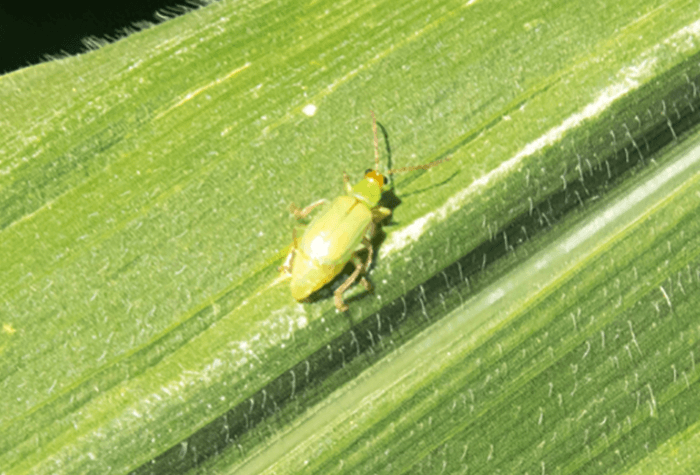Experience the New Force 6.5G
Interactive Infographic
Growers can learn how to protect their yields from corn rootworm by viewing this new visual learning experience from Syngenta.

The costs of damage from corn rootworm combined with efforts to control this pest can reach up to $1 billion in a single year with a severe infestation*. And while corn rootworm pressure can vary from year to year and location to location, this resilient pest is highly adaptable and can wreak havoc even when least expected.
To better understand the effects of corn rootworm and control options, visit the Force® 6.5G Interactive Infographic. See how the overwintering life cycle may be impacting corn crops and view data charts by state with suggested methods of control. Finally, learn the benefits of using Force 6.5G, which includes a high-load granular formulation to provide proven control with fewer stops to refill, thereby allowing for faster, more efficient planting with less hassle.
*G. Johal et. al., Purdue University, 2013
New Force 6.5G Interactive Infographic shows growers how to protect yields from corn rootworm. #corn #agronomy
Corn rootworm larvae feed on roots, which can impede moisture and nutrient absorption. After pupation in the soil, adults emerge from mid-July to early September and feed on corn silks, resulting in poor pollination and interference with kernel development. After mating, adults lay eggs in the soil of corn and soybean fields and overwinter, beginning the cycle anew at egg-hatch in mid-May to early June. Therefore, it is important for growers to scout their fields for signs of corn rootworm damage, as their corn crop approaches maturity.
click to tweet ![]()
To better understand the effects of corn rootworm and control options, visit the Force® 6.5G Interactive Infographic. See how the overwintering life cycle may be impacting corn crops and view data charts by state with suggested methods of control. Finally, learn the benefits of using Force 6.5G, which includes a high-load granular formulation to provide proven control with fewer stops to refill, thereby allowing for faster, more efficient planting with less hassle.
*G. Johal et. al., Purdue University, 2013

